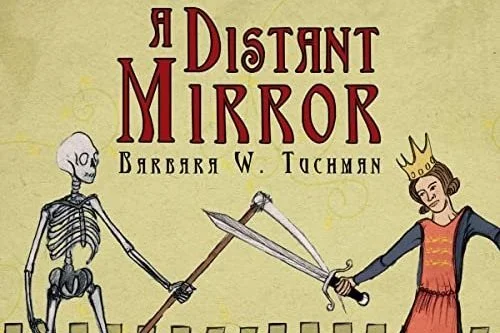Guns of August by Barbara Tuchman (Review)
After I moved to Kansas City in 2006, I soon visited the National World War I Museum. The museum is impressive and worth an extended visit, but it also highlighted how much I had forgotten about the “War to End All Wars.” Of course, WWI did not end all wars, and the far larger WWII soon dominated the text books and focus my history classes. If I had to capture a list of WWI memories that stuck with me, it would probably include: poppies and Flanders Field, deployment of barbed wire, Archduke Franz Ferdinand, mustard gas, dough boys, and Germany reparations that planted the seeds of WWII. This hardly counted as a working knowledge of WWI, so I kept my eyes out for a good book to provide a firmer foundation. Guns of August proved an ideal book for a better understanding of the political climate, and I give it a full recommendation with a caveat.
Before reading Guns of August, I would first read a different Barbara Tuchman book: Proud Tower. The latter was a follow-up book that Tuchman wrote four years after Guns of August using research that did not make the cut for her book. Proud Tower is set from 1890-1914, and it would have been helpful to read this for greater context about what happened after Franz Ferdinand’s assassination.
Still, since Guns of August is Tuchman’s most famous book, I appreciate that most people will stick with her Pulitzer-winning publication. Here are my thoughts on her work:
There was an interesting theme on the role of technology. Not only was there great advancement in how countries used technology for war, but there was also a tendency to scorn those who pushed for usage of the new weaponry. One example included French General Pierre Ruffey proposing a transition to big guns (105 mm instead of 75 mm guns) and an air force as an offensive weapon. He was scorned for his imagination, though he certainly proved correct. Technology was essential for success in the war, but there seemed to be an arrogance in each country assuming its weaponry would be invincible. Countries seemed to underestimate human creativity for killing.
Similarly, WWI highlighted the importance of reconnaissance. The reliability of recon is essential for successful strategy—in war, business, and politics—but a number of the military players shaped their strategy by feelings of optimism or skepticism more so than facts. Confidence in one’s technology, irrespective of other players’ advancements and firepower, caused poor decision-making throughout the war. One example of this occurred as German General Helmuth von Moltke advanced with the German army with an assumption that they were crushing the enemy. He observed that the fight was not yielding the normal signs of route—particularly the lack of prisoners. He knew that a battle must result in breakthrough or encirclement. Otherwise, an enemy will regroup and fight on different ground. Still, everyone expected quick defeat and conclusion of the war.
Germany expressed a belief that WWI would spread German culture throughout the world—crush Russia, France, and Great Britain to create the moral and technological invigoration of Europe. This was not a theme I remember exploring in high school, but Tuchman gave the idea great support.
Early in the war, Europe did not treat Germany with seriousness. But the combination of its ferocity in the 1860 siege of Paris coupled with its philosophy of inflicting terror on Belgium’s citizens (highlighted by burning the Library of Louvain) provoked the world to unify against Germany.
These ideas are just some of the interesting elements of Tuchman’s book that extended beyond her telling of story of earliest stages of World War I. Guns of August instructs in an engaging and entertaining manner. Tuchman’s prose is accessible and I recommend the book for anyone who wants a better understanding of WWI. As noted before, however, the experience will be richer if you read Proud Tower as your primer for Guns of August.


